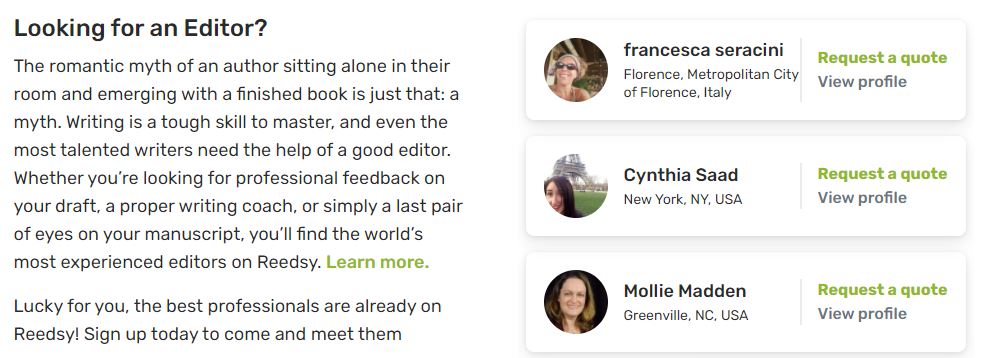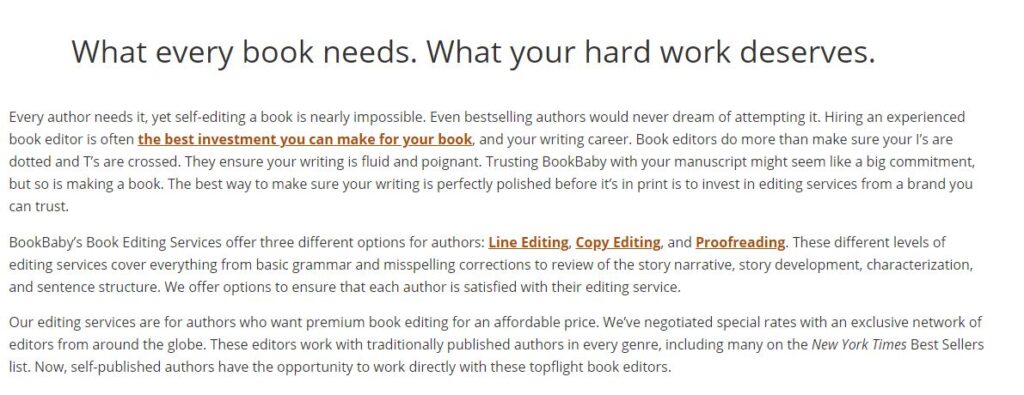One thing I’ve noticed about writers is we don’t love to let anyone in to the perfect little world we so recently created. We so desperately want to be appreciated and read, and we just as desperately never want anyone to see what we’ve written.
Thus we have great trepidation about editors. At the same time, we totally want the help, rescue, clarity, and finality of editing.
If it is my task to help writers overcome resistance, it seems only right to provide unvarnished information about a big part of the process – editing – so my clients, writers, and friends might face less resistance to it.
Where do you find the right editor for you?
Your book is done, and you need an editor. Believe me, no matter how good you are, every book needs a professional editor, even if you’re already a bestselling author. It could be considered two different arts, writing and editing – and both have much to contribute to your great book.

What does a professional editor do?
The first thing to do is to determine what kind of editor you need, right now. Before your book is published, you may need all these editors. In all cases, editors give you feedback – which could be about misspelled words, and misplaced commas, or more poignantly about characters who need more development, plot holes that cause rewrites or misplaced chapters or scenes.
Accepting Criticism
All criticism can be hard to hear, particularly if you haven’t been workshopped in the past, and haven’t developed a method for hearing and considering feedback. So, before we dive in, I’ll offer my 2-cents. Your book is 100% yours for as long as it takes you to write it. Even if you get readers and feedback, you can hold on to your ownership.
- Once it goes to an editor, it starts to take on a moment of collaboration.
- You are still the final arbiter of which changes you make, and which you don’t.
- It is not a BATTLE between you and the editor.
- You are hiring them for their expertise. They provide it.
- Your best, best, BEST way to maximize your editorial experience is if you’re able to use Affirmative Judgement when hearing and assessing the value of their feedback to you.
- Read more about Affirmative Judgement, here. (It’s like sugar or salt. It makes everything better!)
Developmental Editor
A developmental editor helps you rethink structure, plot, characterization. It can be a deep dive into your work, help develop and strengthen your work.
Copy Editor or Line Editor
A copy or line editor looks at language and word choice. They can contribute to pacing and editing for length and impact. They definitely edit for consistency of names, places, events. And they consistently apply syntax, grammar, punctuation, and other elements of style.
Proofreading
Every book is proofread several times by several readers before it goes to publication, and yet there will always be a typo or a grammatical error. Your shore to leave misteaks in, even if you proofread carefully.
What is the process like?
This depends greatly on who is editing for you. But you can ask upfront, what to expect. You know when you give a friend your book to read as a beta reader, and you don’t hear back from them for months? And you don’t want to bother them? Professional editing is NOT like that. They should very clearly let you know how long they’ll need, and what they’ll give you back.
At the very least, you should expect an editor to need 2 weeks to give you notes back – probably longer. But discuss it upfront.
If they’re not clear on their process, ask:
- do you read the work more than once (especially a developmental editor)?
- how do you present your recommendations – positive spin? just the facts?
- how long do you need to do the work?
- in what format will your comments be presented? (writing? conversation? ongoing? once at the end?)
- will we be able to have a conversation about your recommendations?
- what is your experience with other writers/published authors?
- Do you have a specific genre that you specialize in?
- what style manual do you adhere to?
Where to find editors
IRL
If you want an old-fashioned editor/writer relationship, ask other writer friends who they’ve used and who they might recommend. In this kind of relationship, you can discuss the vision upfront, and go through comments and recommendations with the editor, so you can better understand why certain changes are considered important.
If you want to give something cheaper a try, you might find someone on fiverr.com. the prices posted do not represent what you’ll actually pay, but they will give you an estimate before they begin the job, based on your number of pages, type of editing you need, expectations, etc. Most fiverr relationships are in writing/text/email only. Here’s a clip from fiverr’s page about book editing:

It is hard to believe reedsy.com has only been around since 2014. They have become an authority in all-things publishing, and helping authors write, edit, design and publish. They boast 1 million writers in their community, and over 250,000 professionals. You can definitely look at reedsy.com to find an editor, in your specific genre. Here’s a clip from Reedy’s page about book editing:

Bookbaby has editing services, from developmental to copy to line to proofreading. They are full service for self-pubbing authors. Here’s a clip from their page about book editing. The advantage of bookbaby is they are very upfront about their services, costs, timing etc.

What will it cost?
People are wary of spending money on their books, based on an old-fashioned cautionary tale, that if you’re paying, you’re not with a legitimate publisher, back in the days of what they called “vanity presses.” But the reality is, publishing has changed dramatically.
- Yes, a traditional publisher will give your book a developmental edit, line edit, copy edit and proofreading. But before they take on your book, they need to be reading a polished, promising manuscript. You cannot likely get picked up by an agent or publisher without some professional editing.
- If you’re self-pubbing, you have to get it right. your book launches once, and reaches 80% of its reading audience in its first few months. Editing is essential to present a professional, excellent book to the public.
So, what is the investment?
Bookbaby quotes line editing at $10/page, copy editing at $7/page and proofreading at $3/page. these are based on manuscript pages – double spaced, one-inch margins, generally considered 250 words per page.
I put my novel into their form for a quote at 296 pages, and got back $2002.00.
Note: with bookbaby, you don’t pick your editor, and you don’t get the chance to talk with them. You receive all communications in writing.
Reedsy.com offers a “marketplace” of editing professionals, so quotes vary, as do the services and process.
Fiverr prices are pictured above, but fiverr starts at a base/inexpensive level. Prices are quoted as “starting at” and you won’t know your cost until you get a true quote based on your needs and project size, from any particular editor who advertises there.
Three of my private clients are ready for editing at varying levels. If you’d like to see yourself, holding a 300+ page manuscript in your hand, and wondering how to find and how much to pay for an editor (a good “problem” to have) join the Mighty Writers Club. We write together 4x a week. We meet 2x a month, for coaching and training on topics like, how to find an editor. We’d love to have you in, no matter what phase of writing you’re currently in.